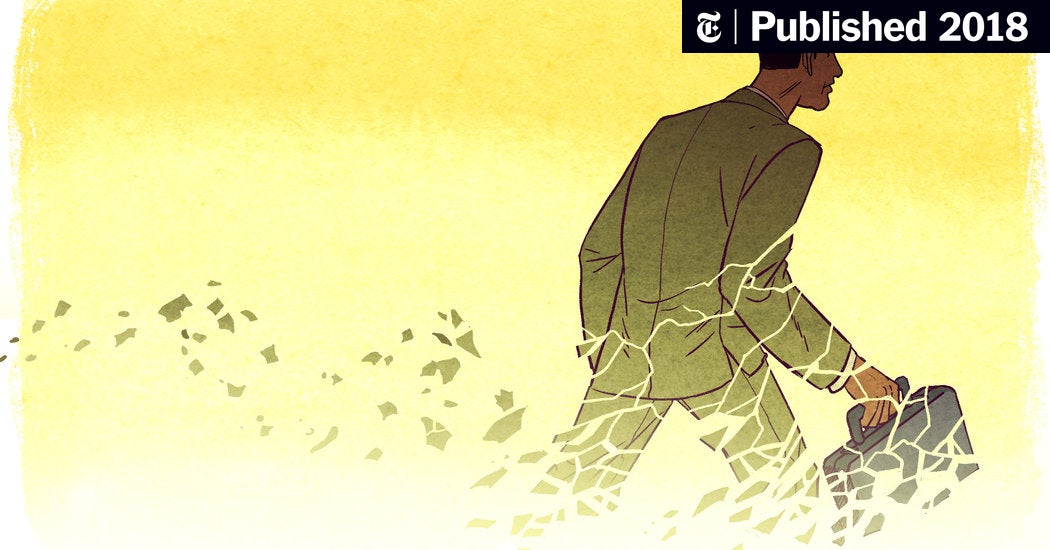Short answer to the question in the headline is “Probably not,” because you would need to change a bunch of legal stuff, political stuff, and ingrained human biases essentially all at once, and that’s very hard to do. In order to better understand exactly how bad long-term unemployment can be, let me point you to this article, and I will pull out a few parts for you:
“There’s a perception that people who are out of work or laid off are not the top performers within an organization. The perception from a potential employer would be, ‘If a company really wanted somebody, if they had their best employees, they’re not going to be laying those folks off. They’re going to be laying off possibly the poor performers.’ Now that’s obviously not always the case. A company could lay off people because of a wide variety of reasons. But there is that perception.”
All too true.
“You see that the last time they held a job was a year ago. So immediately a question comes to mind, ‘Well, why is that?’ Employers start to internally rely on other peoples’ opinions to help them with their decision making. Obviously other recruiters, other hiring managers have already made that call for them, that this person for some reason is not hirable or else they would have already been hired in the last year.”
Ditto.
“I’m told that I am not qualified because I don’t have any paid experience in event planning. So, I’m stuck … I’m looking to break into a field in an entry level position, and I’m a person who’s got all this other experience. I went on an interview for the exact job I wanted. I was so excited and [the interviewer] looked at me like I had 10 heads. ‘What are you doing?’ He just thought I was insane.”
Been on similar interviews.
For people whose identities were tightly tied to the professional success, there is also a sting of humiliation when networking with former colleagues. “It evokes shame,” Stephen told me. “A lot of people that I have known for a long time know me as boss or at least as a peer. And now I’m saying, “Help me out. I’ll take anything.” At this stage, the very act of networking with former colleagues felt like a declaration of having professionally fallen.
The article I linked has tons of these examples. Here’s a dude named “Steven” (changed name) talking about being a beggar:
“The only way I’m likely to get a job is through personal connections. I have attended professional organizational meetings and functions, but I feel almost like a beggar with my hat in my hand. Having been very independent, having been self-sufficient, having been the coordinator, it’s tough to say ‘Put a tin cup in your hand.’ I don’t like the phrase, and I don’t do it that way. But internally, in my gut, I feel like I’m asking for something, and I’m going to be perceived as not meriting it or fitting the qualifications.”
I’ve never been super long-term unemployed. I think the definition is 27 weeks, if I’m not mistaken. I’ve never really hit that. I will say that in 2014, leaving grad school (not sure why I ever went, honestly), I was seeking for probably 10-12 weeks, and that was a bitch, especially because I was living in Minneapolis but my ex-wife and I didn’t want to stay in Minneapolis, so I was conducting the search not even locally. That’s all how I kinda ended up in Texas. When I got piped from that first Texas job in ’15, I tried finding work for about 5-6 weeks and then just started being freelance. I’ve mostly been doing that since January ’16, but I had a period in ’17 that was hard (around my divorce) and in ’19 (moreso around day drinking). These were not “long-term unemployment” situations, but it was hard to find steady contract work. Things are better now, but I understand all the emotions and experiences being described above. I also have friends who have been unemployed for legit 20, 22, 24 months, and it’s brutal.
Can we do anything?
It’s hard. Here are some possible things we could do, I guess:
- More legal protections for older workers
- More re-training programs, although their effectiveness is dubious
- Innovation/Networking hubs for long-term unemployed
- Turn WeWork locations into events like that, as opposed to just young hustlers
- Ageism and bias training for recruiters and CHROs
The core problem is that younger employees are seen as more passionate, energetic, and cheaper — and long-term unemployed has a ton of stigmas around “Well, why are you still unemployed?” We cannot solve the human brain for those things, unfortunately. We can try to put some more protections in place, but we can’t solve for these things, because they’re big fat biases that aren’t going anywhere.
Thoughts/takes?
